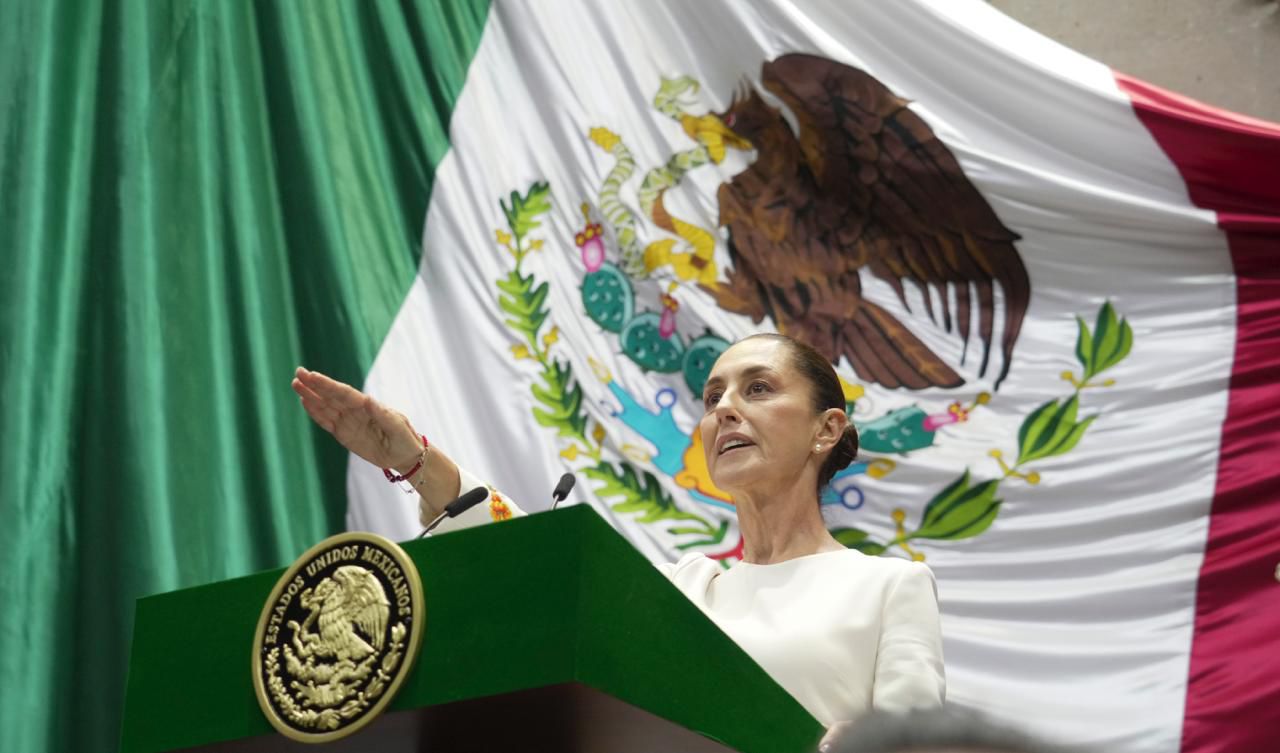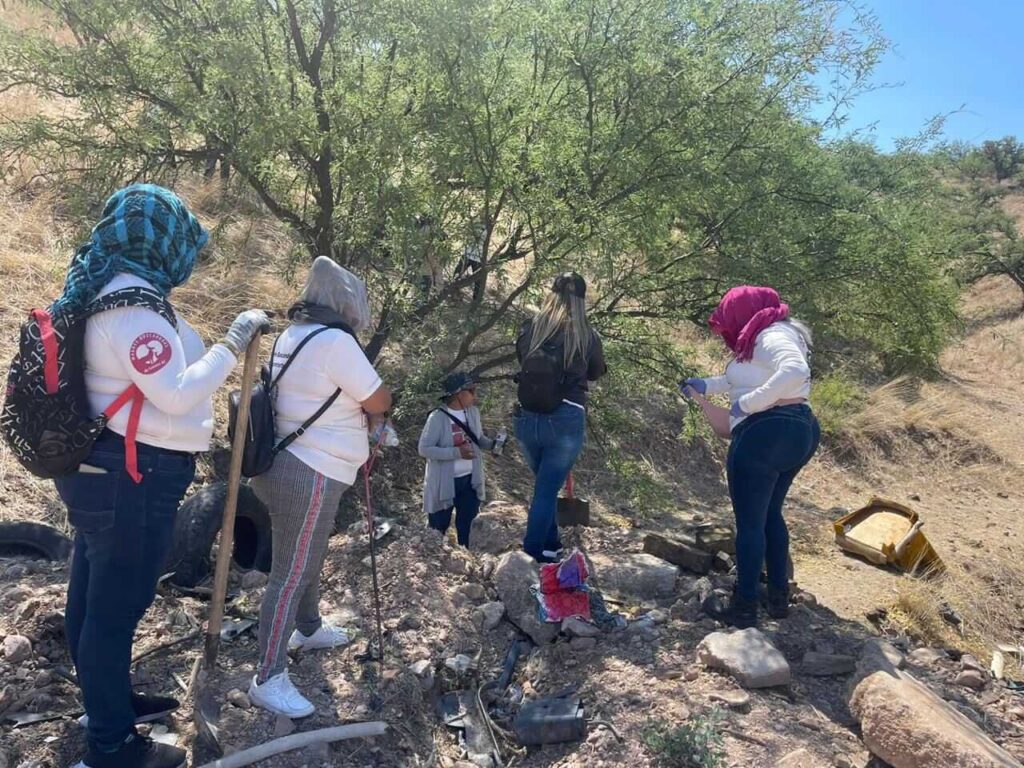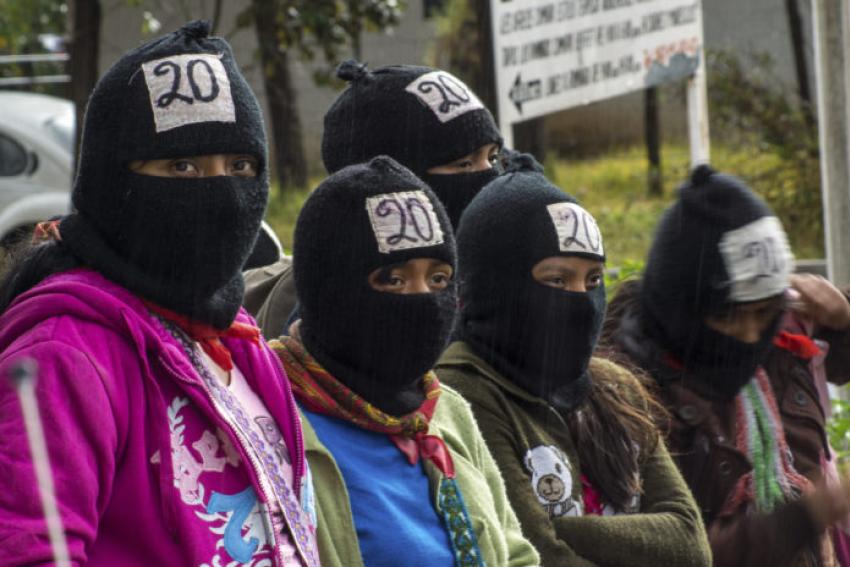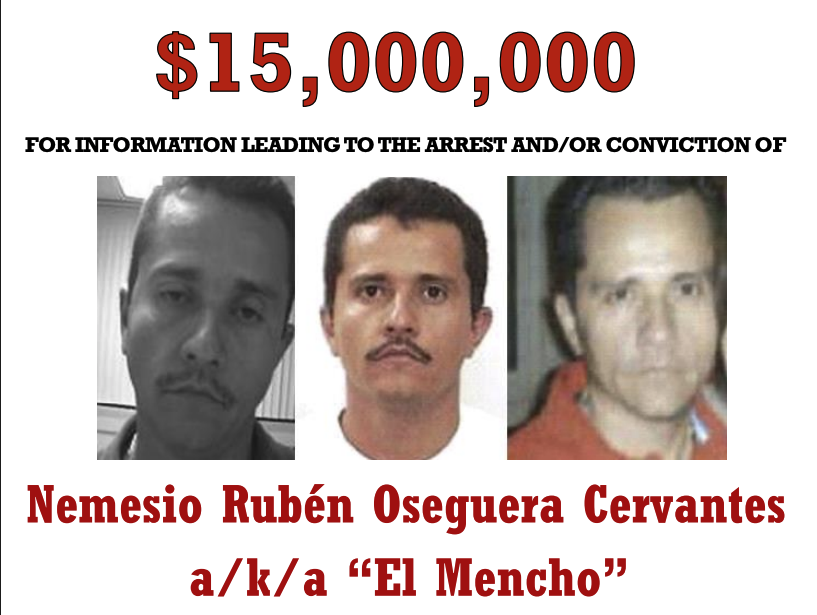Mexico City, Mexico — Claudia Sheinbaum Pardo, a scientist and engineer-turned politician, was sworn into office on Tuesday, becoming Mexico’s first woman president.
As is customary, she started her six-year term with an inauguration ceremony in Mexico City’s main square,”El Zocalo,” home to the National Palace and the city’s government offices, which rest atop ancient ruins of Mexico’s prehispanic past.
The square, where just days earlier protesters gathered to denounce the Mexican government’s failure to provide justice to 43 college students who were forcibly disappeared in 2014, now was overflowing with supporters of Sheinbaum.
“For the first time, not in 200 years, but at least in 503 years, there had not been a woman president of Mexico. And as we always say, she didn’t arrive alone; we all, the women of Mexico, arrived together,” she told the cheering crowd.
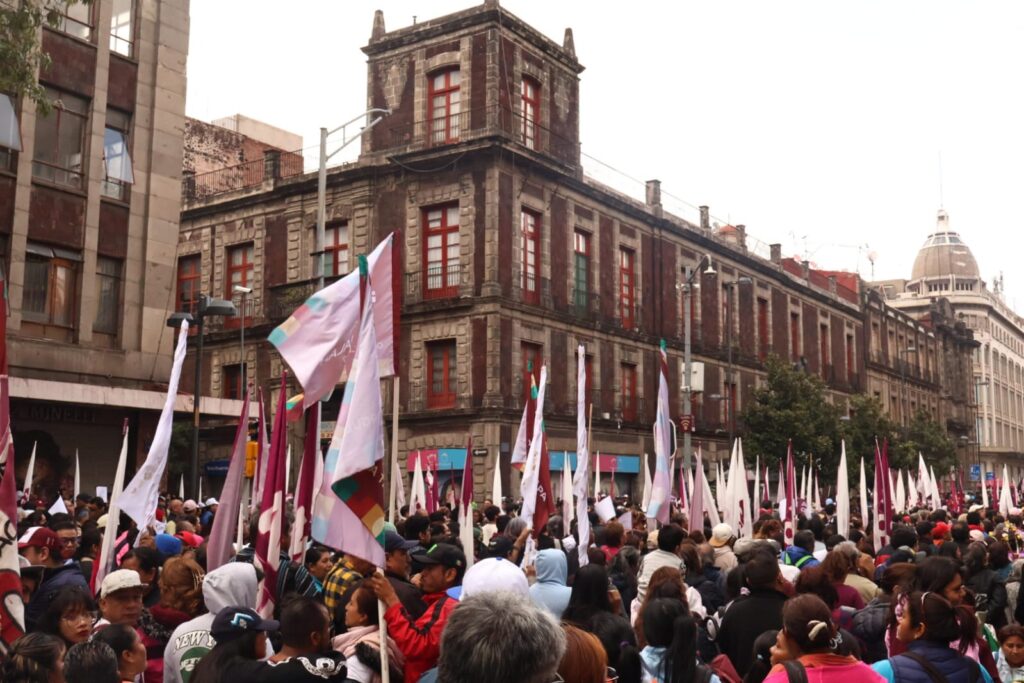
Sheinbaum also praised the government of her political patron, outgoing President Andrés Manuel López Obrador. She thanked him and said he was, “the best president our country has ever had.”
Later, representatives from Mexico’s Indigenous community bestowed upon Sheinbaum the baton of command, meant to symbolize support for her from Mexico’s native peoples.
At the heart of her speech, Sheinbaum listed 100 promises for her six-year mandate, a tactic López Obrador also used upon taking office in 2018.
Her “100 points of commitment for the next six years” encompass Mexico’s industrial development, security strategy, combating corruption, and human rights.
Sheinbaum reaffirmed the commitment to turn Mexico into an industrial haven for North America. “Welcome private investment and the relocation of companies with innovation, good wages, environmental protection, and national content,” she said while announcing the goal of building 100 industrial plants in the country.
Martin Ariza, a professor at the University of Oaxaca, who traveled six hours to witness Sheinbaum’s inauguration, told Aztec Reports he was excited to hear the president’s action plan.
“These 100 points are very important for the country’s development,” he said. “They mainly focus on the southeast. I believe the core strength lies in the south, and I think that’s where a lot of potential will develop. There are many hardworking people and many who need companies and development.”

Ariza said he believes that he expects significant development in Mexico, especially its southeast, during Sheinbaum’s mandate.
Among her promises, Sheinbaum emphasized a larger role for women in the country, announcing the creation of a Ministry of Women and a series of reforms to be announced in the coming days to promote gender equality.
While electing Mexico’s first female leader is seen as a big step in the right direction for women’s rights, many rights groups are wary of Sheinbaum’s track record on women’s issues, especially her harsh crackdowns on protesters during her term as Mexico City’s mayor.
Across Mexico, 10 women are killed per day, and the president will face an uphill battle in making the country safer and more equitable for women.
“Having a female president is definitely a historic step, but there is still a long way to go. Patriarchal violence is present everywhere; it is completely intertwined with Mexican politics. I believe it will be quite a challenge for her,” Naela Ruíz, a 25-year-old student, told Aztec Reports.
Discussing the economy, Sheinbaum promised to carry on the economic policies of her populist predecessor, including maintaining the minimum wage — which increased by 100% over the past six years. She also promised to lower the work week from 48 to 40 hours, something López Obrador’s administration tried but failed to do in his term.
Overall, much of Sheinbaum’s politcal agenda is a continuation of the previous administration’s populist policies, while promising a more humanist government with a social perspective.
The new president mentioned the case of the 43 missing students, which has become emblematic of the wave of human rights violations and impunity in Mexico.

Like her predecessor, she vowed to continue working to solve the case and find the missing students. However, López Obrador’s government had been accused of stonewalling investigators and protecting military officials implicated in the case.
For Susana Ramírez, a 47-year-old academic from Mexico City who attended the rally on Tuesday, Sheinbaum’s inauguration brings hope.
“We have grown a lot, and I believe it’s thanks to this government because it has trusted the people and given us a voice. There is much to be done, but we trust in these 100 promises that Claudia Sheinbaum communicated to us today. I have a lot of faith in her, and I am very proud as a woman that she was the candidate,” she told Aztec Reports.


